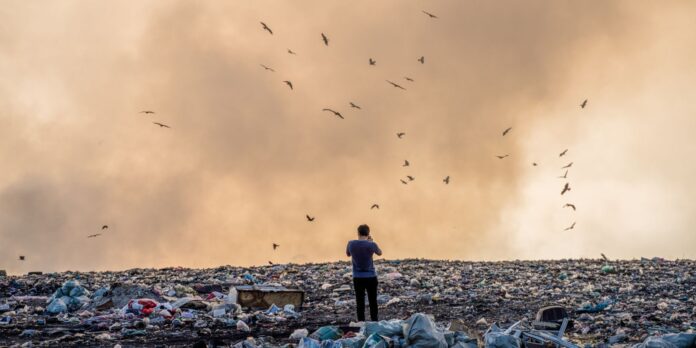Bangladesh, a country of stunning natural beauty and rich biodiversity, is facing an escalating environmental crisis. Rapid industrialization, urbanization, and population growth have contributed to severe pollution, posing significant threats to public health, ecosystems, and economic sustainability. This article delves into the primary causes of environmental pollution in Bangladesh, its impacts, and the urgent need for comprehensive solutions.
Air Pollution
Air pollution is a major environmental issue in Bangladesh, particularly in urban areas like Dhaka, one of the most polluted cities in the world. Emissions from vehicles, industrial discharges, and the widespread use of biomass for cooking contribute to high levels of particulate matter (PM2.5 and PM10) and other harmful pollutants. According to the World Health Organization (WHO), exposure to these pollutants increases the risk of respiratory and cardiovascular diseases, leading to premature deaths. In 2019, air pollution was linked to an estimated 173,500 deaths in Bangladesh.
Water Pollution
Water pollution in Bangladesh is primarily driven by industrial waste, agricultural runoff, and inadequate sewage treatment. The textile and leather industries, vital to the economy, are significant polluters, discharging toxic chemicals and heavy metals into rivers and water bodies. The Buriganga River, flowing through Dhaka, exemplifies this issue, being heavily contaminated with industrial effluents and solid waste. Moreover, arsenic contamination in groundwater affects millions, posing serious health risks such as cancer and skin lesions.
Soil Pollution
Soil pollution is another pressing concern, often resulting from the excessive use of chemical fertilizers and pesticides in agriculture. These practices degrade soil health, reduce agricultural productivity, and contaminate food supplies with hazardous substances. Additionally, the improper disposal of industrial waste and electronic waste contributes to soil contamination, adversely affecting both the environment and human health.
Noise Pollution
In urban centers, noise pollution from traffic, construction activities, and industrial operations is a growing problem. Prolonged exposure to high noise levels can lead to hearing loss, stress, sleep disturbances, and other health issues. The lack of effective regulations and public awareness exacerbates this situation, impacting the quality of life in cities like Dhaka and Chittagong.
Plastic Pollution
Plastic pollution is a burgeoning issue, with inadequate waste management systems leading to widespread littering of plastic bags, bottles, and packaging materials. These plastics clog waterways, harm wildlife, and contribute to the broader issue of marine pollution. Bangladesh’s rivers and coastal areas are increasingly polluted with plastic debris, threatening both marine ecosystems and the livelihoods of communities dependent on fishing.
Impacts on Health and Environment
The consequences of environmental pollution in Bangladesh are profound. Health impacts include increased incidence of respiratory diseases, cardiovascular conditions, and various cancers. Children and the elderly are particularly vulnerable, facing heightened risks from air and water pollution. Environmental degradation also threatens biodiversity, with polluted habitats endangering numerous species of flora and fauna.
Efforts and Solutions
Addressing environmental pollution in Bangladesh requires a multifaceted approach involving government action, community engagement, and international cooperation. Key measures include:
-
Strengthening Regulations and Enforcement:
Implementing and enforcing stricter environmental regulations for industries and vehicles can significantly reduce emissions and waste. Establishing stringent standards for air and water quality is essential.
-
Promoting Sustainable Practices:
Encouraging the adoption of eco-friendly technologies and sustainable agricultural practices can mitigate pollution. Incentives for industries to adopt cleaner production methods and waste treatment facilities are crucial.
-
Enhancing Waste Management:
Developing efficient waste management systems, including recycling programs and proper disposal methods, is vital to reduce plastic and industrial pollution.
-
Raising Public Awareness:
Educating the public about the health and environmental impacts of pollution can drive behavioral changes and support for pollution control measures.
-
International Support and Collaboration:
Leveraging international aid and expertise can bolster Bangladesh’s capacity to tackle pollution. Collaborative projects and funding from global environmental organizations can provide the necessary resources and technical know-how.
Environmental pollution in Bangladesh is a critical issue that demands urgent and sustained action. The combined efforts of the government, industry, and civil society are essential to mitigate the adverse effects of pollution and safeguard the health and well-being of the population. By embracing sustainable practices and enforcing robust environmental policies, Bangladesh can pave the way for a healthier, more sustainable future.






